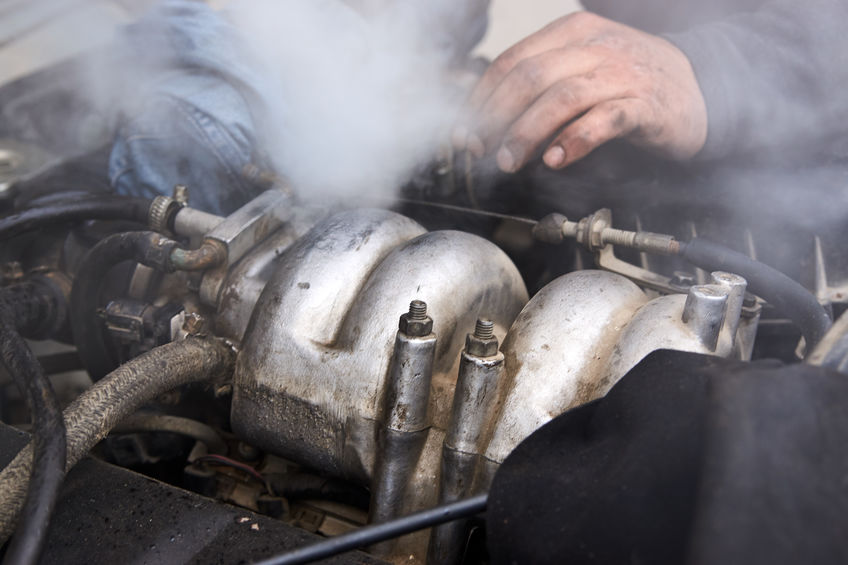Diesel Aftertreatment systems, despite being utilized in trucks since 2008, continue to provide fleet truck repair and maintenance issues for many drivers and fleet owners.
Diesel trucks produce post-combustion gasses that are harmful to the environment when released. Fortunately, modern trucks have adopted the complex aftertreatment systems in an effort for clean exhaust and emissions while driving the trucks without sacrificing performance and power.
Ensuring that these systems are properly maintained is important to avoid costly repairs and maintenance, and they are beyond the regular checkups you’ll want from your trusted truck mechanic. But most importantly, these systems will help ensure that your fleet’s emissions are maintained within the government regulation requirements to eliminate or lower your risks of compliance violations.
What are Aftertreatment Systems?
Aftertreatment systems are devices that are used to lower harmful exhaust emissions from internal-combustion engines such as those used by heavy and medium-duty trucks. They generally improve the efficiency and performance of vehicles.
The truck aftertreatment systems have two major components, namely:
- The diesel particulate filter system (DPF), which can filter out at least 90% of particulates from the exhaust as well as oxidize hydrocarbons and carbon monoxide; and
- The selective catalytic reduction system (SCR), which essentially reduces nitrogen oxide (NOx) content from the emissions through various components and processes.
Maintenance Issues with Aftertreatment Systems
As if the significant additional cost of having the system in new trucks isn’t painful enough, a fleet owner also has to deal with ongoing truck maintenance costs such as the expensive regeneration process for cleaning the filters.
Ash buildup restricts airflow
A clogged DPF filter can crack due to the buildup of air pressure. Other maintenance issues related to dirty filters include:
- Restricted airflow to the fuel, which leads to the engine generating more soot and quicker accumulation of ash; and
- Air leaks in the exhaust and intake systems, which leads to the engine burning more fuel than required, and thus, generating more soot.
It’s recommended to have a trusted truck mechanic to remove the accumulated ash around 250,000 miles.
Engine products contain materials that can clog the filters
For example, engine lubricants currently available in the market contribute to as much as 98% of non-combustible matter in the filters. They contain metallic additive materials, which form into non-combustible ash in the exhaust and clog the aftertreatment system filters.
Another example is the anti-wear additives that contain zinc, which significantly increases ash accumulation. Other culprits are the magnesium or calcium in detergent motor oils.
It’s best to choose your engine oil wisely and ensure that your engine is compatible with low-ash oil variants.
Coolant clogging up the system
A malfunctioning exhaust gas recirculation (EGR) can leak coolant into the exhaust system and damage your filter. It can lead to your engine producing more particulate matter, and thus, causing more buildup to your DPF filter.
If you suspect you’re losing coolant internally, have your vehicle checked for possible leaks immediately before they can cause serious damage to your exhaust system or engine.
Prohibitive cost of replacement DPF units
DPF Filters that are excessively clogged have a much shorter service life than that for which they are originally designed. These components will have to be replaced, DPF filter replacement units generally cost around $3,000-$7,000 before any labor to remove the old unit and install a new one.
Maintenance takes the truck out of service
Even when you just need the filter replaced by a professional fleet truck repair and maintenance crew, your truck will have to be out of commission for a period of time. This means that you’ll be incurring downtime costs and underutilization of vehicles especially when you’re running a tight large-scale delivery business.
Let experienced mechanics check your fleet for aftertreatment system issues
Rectify any truck maintenance issues as early as possible before they take any of your fleet units out of service. You can ensure this by having your vehicles undergo routine checks to identify the maintenance and repairs that they require immediately.
Truck-N-Trailer is your premier one-stop facility in Oklahoma City when you need reliable fleet service & repair with the best rates, fastest turnaround time and one-on-one personal service. Get in touch with us today.




